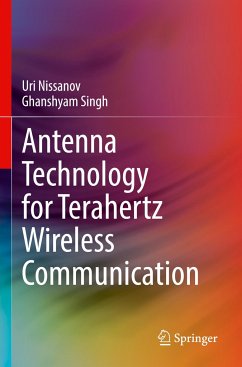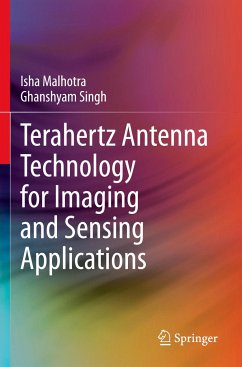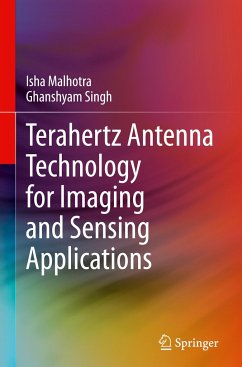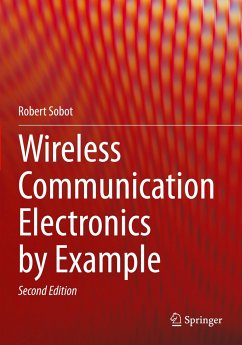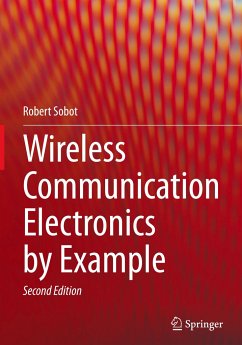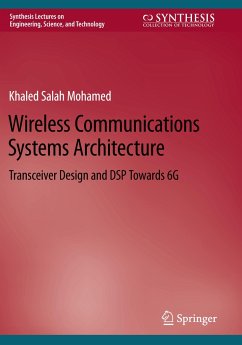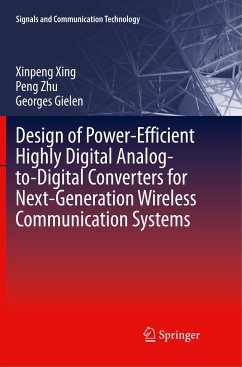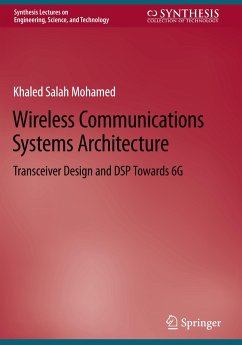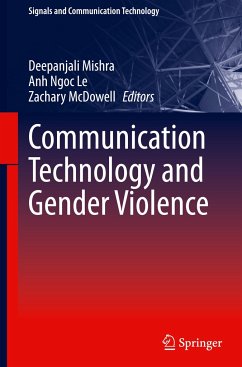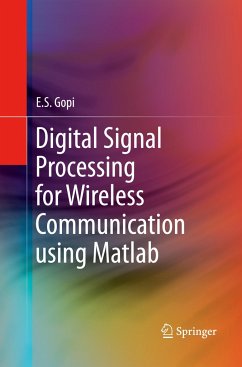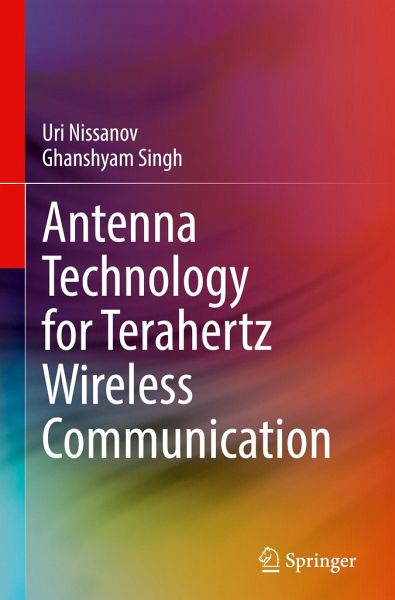
Antenna Technology for Terahertz Wireless Communication
Versandkostenfrei!
Versandfertig in 6-10 Tagen
83,99 €
inkl. MwSt.
Weitere Ausgaben:

PAYBACK Punkte
42 °P sammeln!
This book discusses terahertz (THz) wireless communication, particularly for 6G enabling technologies, including antenna design, and channel modeling with channel characteristics for the success of reliable 6G wireless communication. The authors describe THz microstrip antenna technologies with different substrates and introduce some useful substrates to reduce the conductor and substrate losses at the THz frequencies. The discussion also includes the design of the THz unit-cell microstrip antenna and the techniques to boost the microstrip antennas' gain, directivity, and impedance bandwidth (...
This book discusses terahertz (THz) wireless communication, particularly for 6G enabling technologies, including antenna design, and channel modeling with channel characteristics for the success of reliable 6G wireless communication. The authors describe THz microstrip antenna technologies with different substrates and introduce some useful substrates to reduce the conductor and substrate losses at the THz frequencies. The discussion also includes the design of the THz unit-cell microstrip antenna and the techniques to boost the microstrip antennas' gain, directivity, and impedance bandwidth (BW), which influence the wireless communication range which is highly affected by the path losses of atmospheric conditions, and transmit and receive data rates, respectively. Moreover, this book discusses the multi-beam and beamforming THz antenna technologies with the multi-user-multiple-input-multiple-output (MU-MIMO) features. Additionally, this book describes the reconfigurable capabilities, artificial intelligence, machine learning, and deep learning technologies that will influence the success of 6G wireless communication and the authors suggest a remedy for integrating multiple radios into the system-on-chip (SoC) design.





